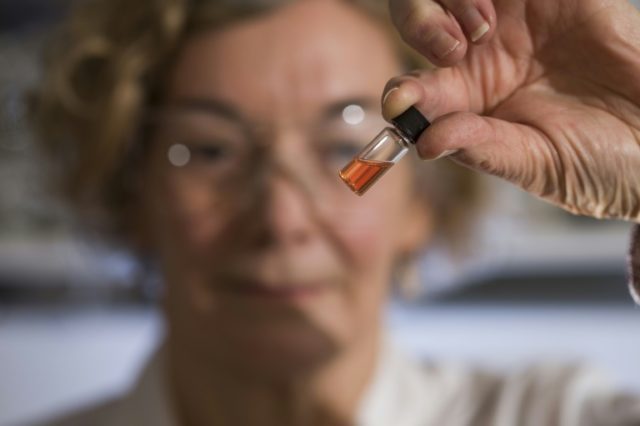Researchers from Australia National University have discovered the oldest colors on record — 1.1 billion-year-old bright pink pigments extracted from rocks beneath the Sahara desert.
Pigments taken from the marine black shales of the Taoudeni Basin in Mauritania, West Africa, are reportedly more than 1.1 billion years old, half a billion years older than any other previously discovered pigments according to Business Insider. Dr. Nur Guenelie from the Australian National University stated: “The bright pink pigments are the molecular fossils of chlorophyll that were produced by ancient photosynthetic organisms inhabiting an ancient ocean that has long since vanished.”
It was first announced in the journal PNAS that the discovered fossils reportedly range from a dark blood red to a deep purple, when diluted these become bright pink. The molecules were discovered by Dr. Gueneli during her Ph.D. studies, research on her findings was led by the ANU with support from researchers in the United States and Japan as well as Geoscience Australia. As part of the research, the billion-year-old rocks were crushed to powder and the molecules of ancient organisms were extracted and analyzed.
Dr. Gueneli stated: “The precise analysis of the ancient pigments confirmed that tiny cyanobacteria dominated the base of the food chain in the oceans a billion years ago, which helps to explain why animals did not exist at the time.”
Associate Professor Jochen Brocks from ANU stated that the discovery of large, active organisms within the rocks were most likely to have been restrained by larger food particles such as algae. Dr. Brocks stated: “Algae, although still microscopic, are a thousand times larger in volume than cyanobacteria, and are a much richer food source.” Brocks continued: “The cyanobacterial oceans started to vanish about 650 million years ago, when algae began to rapidly spread to provide the burst of energy needed for the evolution of complex ecosystems, where large animals, including humans, could thrive on Earth.”
Lucas Nolan is a reporter for Breitbart News covering issues of free speech and online censorship. Follow him on Twitter @LucasNolan or email him at lnolan@breitbart.com

COMMENTS
Please let us know if you're having issues with commenting.